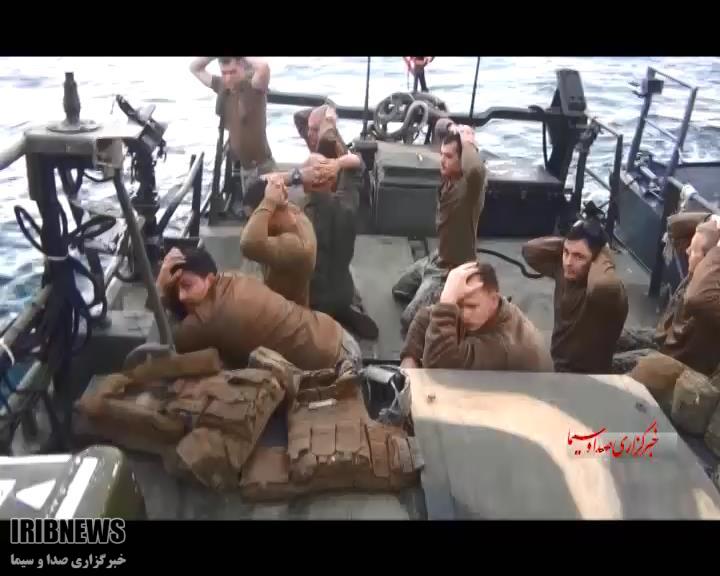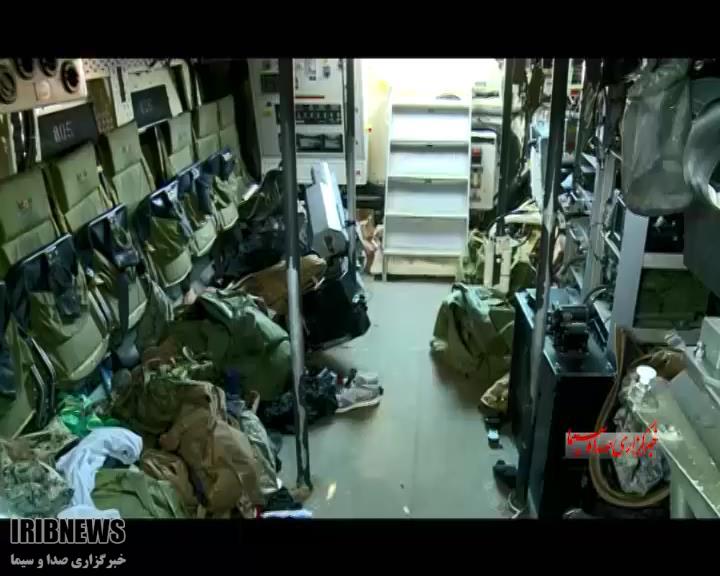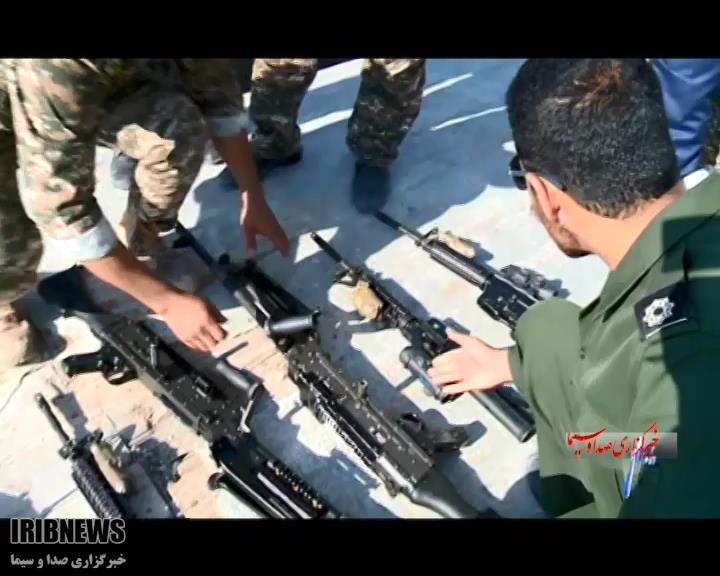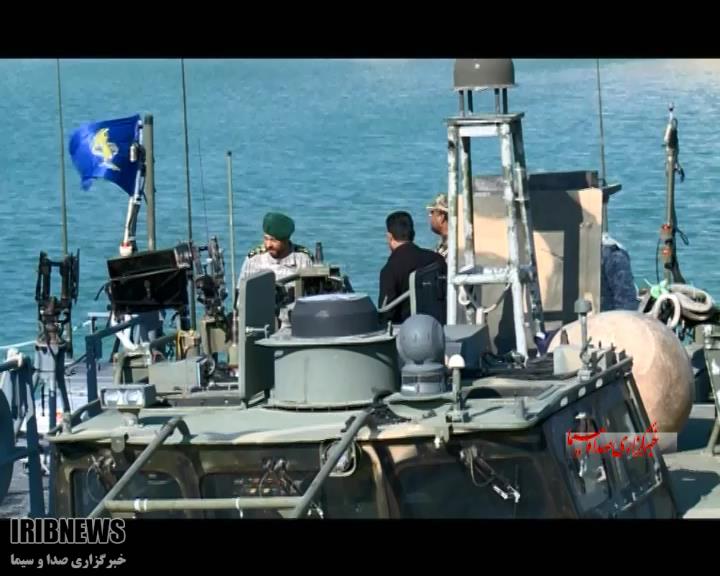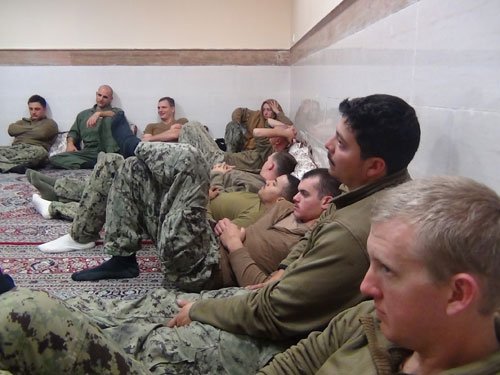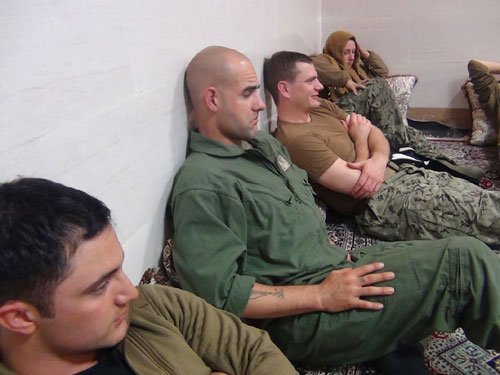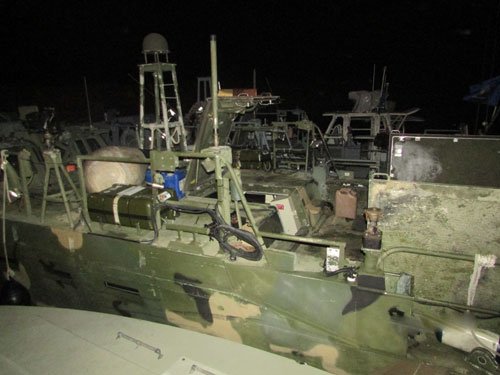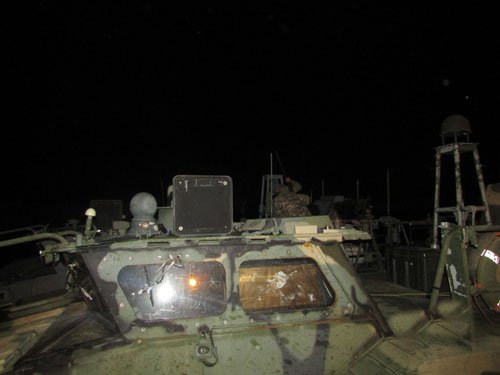Lithuania says Russian incursions into the airspace of countries in the Baltics has increased 14 percent.
WASHINGTON — As European countries scramble to buy new next-generation air and missile defense systems or upgrade existing systems, the battle for business between Raytheon and Lockheed is set to continue into 2016, even in countries where key decisions appear to have already been made.
Both Germany and Poland made major decisions this year to procure new missile defense systems. Germany chose Lockheed Martin and MBDA Deutschland to build its new system while Poland chose Raytheon’s Patriot.
But no signatures have been scrawled on a finalized contract in either case, and both companies are closely watching for any opening that could help them get back in the running.
Both Germany and Poland are expected to finalize contracts for a system in 2016 while it’s anticipated other countries will determine what they can afford to buy or develop alone, which will guide what type of role Raytheon or Lockheed could play in future procurement across NATO.
Patriot already has a robust international community with 13 international partners, but many of these countries are looking for upgrade opportunities or a newer replacement. Raytheon’s answer to that is its next-generation Patriot with an Active Electronically Scanned Array (AESA) Gallium-Nitride (GaN) radar and an open command-and-control architecture.
Lockheed has built a Medium Extended Air Defense System with a 360-degree threat-detection capability that has gone through a challenging dual-intercept test in 2013 and is said to be about 85 percent fully developed.
The year ahead will carve a more defined path for NATO countries looking to upgrade or replace air and missile defense systems. Here’s a look at the state of play in several countries that are close to making critical procurement decisions in a missile defense market projected to be worth more than $100 billion in the next 15 years:
Poland
Poland announced this past spring that it chose Raytheon’s Patriot system for its new air and missile defense program called Wisla. The plan was to buy two Patriot systems in the current configuration, followed by next-generation systems that include the AESA GaN radar and an open architecture that would allow a variety of interceptors to plug into the system. The two initial Patriot systems would then be retrofitted with next-generation capabilities.
Poland and the US government began negotiations to purchase the first two Patriot batteries, expecting to sign a contract within a year.
Yet officials close to the project and outside experts were quick to note that Raytheon should not declare victory just yet.
Poland has expedited its missile system purchase due to escalating tensions in Russia. The country changed its requirements during the Wisla competition, declaring it could only consider already fielded systems. Originally, Poland considered MEADS, Israel’s David’s Sling and a French consortium’s offering. MEADS and David’s Sling were taken out of the running because they are still in development.
Also due to Poland’s need to procure something quickly, the country decided not to just wait for a next-generation system, but to buy something that could be deployed by 2019.
Poland would then buy two more batteries with the capabilities it wanted including a radar capable of seeing threats from 360 degrees and an open command-and-control system, which would be fielded by 2022. Four more systems would be procured by 2025 and the original systems would be upgraded.
But even back in the spring, Poland hinted that it would consider capabilities for its next-generation system outside of Patriot. Col. Adam Duda of Poland’s Armaments Inspectorate acknowledged the US is making changes to its own air and missile defense system, which includes a new command-and-control system built by Northrop Grumman – the Integrated Battle Command System – that Poland might explore in the future.
Such a comment gave new hope for earlier contenders like Lockheed that were hoping to be reconsidered.
Then there was a big election this year in Poland that upended major defense procurement decisions made by the former government. Poland’s new conservative government last month called into question the previous liberal cabinet’s choice of US-made Patriot missiles – an estimated €5 billion (US $5.5 billion) deal.
New Defense Minister Antoni Macierewicz said during a November parliamentary defense commission meeting that the conditions of the potential contract to buy US missiles “have changed a lot since the public announcement.”
Macierewicz said he wasn’t happy with the price and “in no way makes it possible, even with the farthest-reaching promises, not confirmed by any documents or any international obligations, for such a defense before the years 2023 to 2030.
“The price is much higher, the delivery time much longer … in short, this contract is practically non-existent,” he said.
The new government will, at the very least, study the previous government’s decisions, sources close to the situation say. What that will amount to remains to be seen.
Several sources in Poland have theorized that the new government blasting the Patriot deal is a ploy to get Raytheon and the US government to drop the price and that no other systems are actually being considered.
Michal Jach, chairman of the Polish parliament’s defense committee, said in a Dec. 22 report in Polska Zbrojna, “It appears that with [the Americans’] back to the wall they are capable of putting forward a more favorable offer compared to the one presented so far. Let me recall that the first offer did not even meet operational requirements. Today it is difficult to say if we announce a new bid. It all depends on what Patriot’s manufacturer will propose to us.”
Others close to the issue believe Poland could ultimately decide to wind back the clock and re-examine the four systems, open an entirely new competition or model an indigenous development off of the US Army’s nascent plan to build an Integrated Air and Missile Defense System (AIAMD).
A visit to Washington by representatives of Poland’s defense minister scheduled before Christmas is expected to be crucial, Marek Swierczynski, an analyst for Poland’s Polityka Insight, wrote in a recent report.
Deputy ministers in Poland have also suggested that the country pursue next-stage weapon projects like electromagnetic and laser weaponry and abandon Wisla, Swierczynski reports.
The country is also focused on developing a short-range air defense system it is calling Narew through a competitive process and may choose to prioritize that over Wisla, sources say. Lockheed Martin’s MEADS technology is in the running for the Narew competition.
The new year will determine whether Raytheon is able to sell Patriot to Poland and whether that sale will go beyond just the first two systems.
Also up for reconsideration is the old government’s plan to buy 50 Airbus helicopters worth €3 billion (US $3.3 billion). Macierewicz said he hoped US manufacturer Sikorsky and British-Italian group AgustaWestland – Airbus’ competitors for the chopper deal – would take part in any potential new tender.
And because Connecticut-based Sikorsky is now a Lockheed Martin company, Lockheed now has a chance to establish a larger footprint both in missile defense and in the helicopter business in Poland.
Germany
The fate of the Medium Extended Air Defense System (MEADS) hung in the balance for more than a year before Germany announced in June it had decided to continue developing the system with Lockheed and MBDA Deutschland.
The decision was crucial for MEADS’ survival after the US government decided not procure it after co-developing the system with Germany and Italy. The US had planned to replace Patriot with MEADS. The missile defense system was essentially orphaned while Germany weighed all its options following the system’s proof-of-concept phase that culminated in a successful 2013 test.
But while Germany works toward signing a contract with Lockheed and MBDA to continue work on what it is calling the TLVS program, Raytheon and Lockheed continue to grapple for business.
Patriot is already in the German inventory and Raytheon continues to seek ways for the system to remain. Raytheon’s Vice President John Baird has said that if, at any point, MEADS doesn’t meet certain technological or schedule criteria over the next few years then the German government could discuss modernizing the Patriot systems it already has – perhaps with a next-generation system like Poland. The expectation is that Patriot will be around in Germany until 2030, while the country waits to bring MEADS online.
But according to Lockheed’s MEADS director, Marty Coyne, the system is 85 percent developed and the system will be ready for delivery four to five years after a contract is signed.
What’s left to do is integrate a German interceptor – the IRIS-T – and complete logistics planning, training materials and software qualification. The MEADS program will also need to ensure its battle manager network node can integrate with Germany’s Airbus-made Surface-to-Air Missile Operations Center (SAMOC).
Coyne recently told Defense News that he doesn’t see any of the upcoming work as a “risky endeavor.” The work “just needs to be done, the technical risk is behind us,” he said.
Even so, some question why a system supposedly 85 percent complete would need four to five years to be finished. The contract timeline will flesh out to something more concrete in 2016.
Germany’s call for tender for the TLVS program was expected in September but was not released until later this year. According to Coyne, Lockheed and MBDA are laser-focused on delivering a proposal by the spring. The expectation is still to sign a contract in fall 2016, meaning the program will stay on schedule despite the late release of the call for tender.
According to media reports in Germany earlier this month, Katrin Suder, the state secretary responsible for arms procurement, said MEADS is moving forward and the reason for the delayed tender was a careful legal assessment that included successfully driving down a tax risk of €600 million to €700 million, which has now been reduced to a less than €100 million.
And a spokesperson for the Bundestag’s Defence Committee added that the US and Germany reached an agreement to get complete transfer of data and software, and that the IRIS-T integration will be complete by the end of 2016.
But there is still some risk associated with the TLVS program, according to a letter outlining questions and answers posed from parliament to the Ministry of Defence printed in a September issue of the trade publication Griephan Briefe. The letter signed by Markus Grubel, the Ministry of Defence’s parliamentary state secretary, and addressed to Wolfgang Hellmich, the chairman of the Defence Committee, states much of the MEADS development data risk is already reduced significantly.
Grubel notes however that further risks are covered by the restrictions and termination criteria set by the inspector general of the Bundeswehr. “Sensor technology, communication tools, the competence of the contractor, target and threat databanks, as well as the amount of the import turnover tax are in the focus,” he writes, according to a translation.
The letter also lists a number of risks that if not reduced could lead to withdrawal from the contract, such as “technical feasibility of the Exciter built in the multifunction radar, availability of the long-range sensor, availability of the medium-range sensor, commencement regarding the feasibility of the short-range radio communication system” and “operability of the target and threat databank.”
The letter also outlines the cost of the TLVS development program through 2023 which amounts to a total of €963 million (US $1 billion). The procurement portion of the program will cost €3 billion (US $3.3 billion) starting in 2019 and continuing through 2027.
Turkey
Turkey sent shockwaves through the US and European missile defense communities when it picked a Chinese air and missile defense system not interoperable with NATO systems.
China Precision Machinery Import Export Corp. defeated a US partnership of Raytheon and Lockheed Martin, offering Patriot; Russia’s Rosoboronexport, marketing the S-300; and Italian-French consortium Eurosam, maker of the Aster 30.
Then Turkey slowly walked back that decision over nearly two years amid complaints from other NATO countries that a Chinese system could not work within a NATO missile defense network. Turkey kept the lines open with both Eurosam and Raytheon as it mulled its options.
Turkey finally decided to scrap the $3.4 billion air and missile defense program called LORAMIDS last month. Now Turkey is looking to develop a system internally. Most likely, work will be given to two state-controlled companies, Turkey’s biggest defense firm military electronics specialist Aselsan and the missile maker Roketsan.
Lockheed, Raytheon and Eurosam are likely to look for ways into Turkey’s development program. Relationships with the US companies and Turkish companies already exist.
Lockheed and Roketsan, for instance, minted a contract in September to co-develop the SOM-J missile intended for integration into the US Air Force and Navy versions of the F-35 fighter jet.
Raytheon said in a recent statement that “as Team USA we remain prepared to collaborate and engage with the Turkish industry and the Turkish government to help ensure that our NATO partner is able to achieve their program objectives.”
According to Lockheed’s Coyne, “Turkey is actually similar to Poland in many respects. They seek a modern capability for a good price and on a reasonable timeline to counter an obvious threat posed by ballistic missiles and air-breathing threats that can attack from all directions. Like Poland, they also want their very capable defense industry to play a significant role in the development and production of this system, which is obviously understandable. This is the MEADS model.”
Coyne said that for Lockheed, Turkey and Poland would be a major focal point in 2016.
For several years Turkey has had to rely on other countries to loan air-and-missile defense systems to secure its border with Syria. The US, the Netherlands, Spain and Germany have all bolstered Turkey’s missile defense by loaning Patriot systems. However, the Netherlands, the US and Germany have all withdrawn their aging Patriot batteries out of Turkey in 2015, citing the need to upgrade them. Germany withdrew its systems in December.
Spain plans to keep its Patriots in Turkey and Italy may send its SAMP/T middle defense batteries to bolster Turkey’s border security as well.
Turkey has said it will likely need to purchase a bridge-gap solution to deal with the current threat while it builds its own system.
“The natural contenders in the new race will be the same US and European groups,” according to an industry source. “Delivery timetables will be crucial since Turkey consider this as an urgent buy.”
The US consortium commits to deliver the Patriot system within 40 months and the European group commits to deliver the SAMP/T (Aster 30) system in 18 months.
The Netherlands
While Lockheed was eyeing the Netherlands as a possible MEADS customer, a Dutch official said some discouraging things this fall during a parliament defense committee hearing.
Defense Minister Jeanine Hennis-Plasschaert said, according to translated testimony, that The Netherlands could afford to do nothing more to enhance its missile defense than upgrade its aging Patriot systems. The decision sounded like a blow to Lockheed Martin with aspirations to make MEADS the NATO system of choice.
Hennis-Plasschaert said the Patriot system is reaching the end of its lifespan and that upgrading the system was a better investment than replacing it with MEADS, which would be too costly, especially when considering upkeep of both systems until 2040.
According to an industry source, the Dutch are at the very preliminary stages of their budget process for the next fiscal year and the country has yet to review alternatives. So far, the Dutch are planning to spend a small amount on a life-extension program their Patriot batteries for upgrades such as a new touch screen.
Hennis-Plasschaert also argued the reason for upgrading Patriot was to align with Germany, which plans to keep its Patriot systems until at least 2025.
“The Dutch, like Germany have been leaders in AMD in Europe for years,” Lockheed’s Coyne said. “They have not yet made a long-term decision reference their AMD forces, only that they will spend a modest sum of money over the next few years to do basic life-extension repairs to their 30-year-old Patriots. Our goal is to show them a path to MEADS that is both affordable and maintains their leadership role and strong connection to Germany.”
Italy
While Italy was partnered with Germany and the US to co-develop MEADS, it has long been clear that it can’t afford to continue to develop the system alone. Italy was waiting for Germany to decide whether it would remain committed before considering how it might continue to invest.
“Now that Germany has chosen MEADS, we are seeing very positive signs on both the government and industry side,” Coyne said about Italy. “We are in discussions with both entities and are very optimistic a MEADS path forward for Italy will become a reality in 2016.”
The rest of NATO Europe
Several countries are interested in having a part in NATO missile defense, but these countries do not have budgets robust enough to buy complete systems.
“Even those with modest defense budgets see the opportunity to participate in AMD for the first time by adopting the MEADS open plug-and-fight architecture,” Coyne said.
For example, a country could initially invest in just the battle manager or the MEADS surveillance radar, he suggested, in order to tie into the NATO air picture.
Coyne said that smaller NATO countries like Romania, for example, are talking to the MEADS team about such an approach.
And since Raytheon’s next-generation Patriot will have an open architecture, it could likely compete with Lockheed with a similar approach.
“This is exciting for us as industry to play a small role in the development of a much needed NATO AMD umbrella,” Coyne said.

